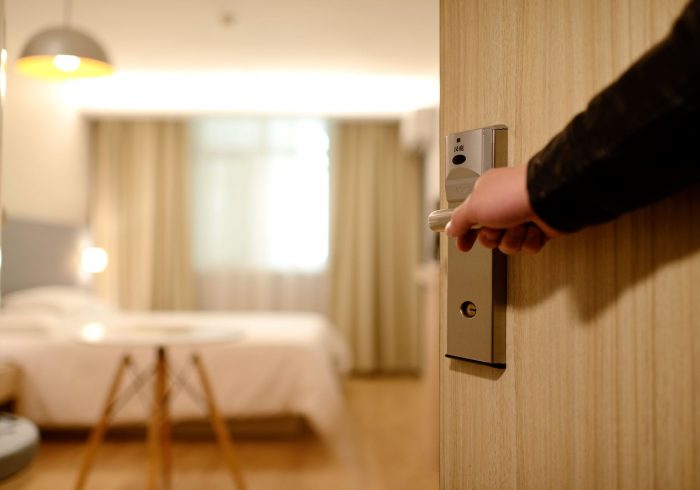After some tough times during the COVID-19 pandemic, the hospitality and travel industries are gradually recovering and seeing more activity again. As part of this, hotels must be stricter than ever when it comes to implementing and observing healthy and hygienic practices to welcome their guests. Guests prefer to stay in hotels that comply with regulatory and industry standards and ensure their safety in all respects. Besides their normal practices, hotels must now implement additional precautions to ensure the highest standards of health and safety in the context of the pandemic.
Here are some of the best practices in health and hygiene that must be strictly observed by all hotels to maintain a healthy environment for all.
Food and Beverage Safety
Food and beverage safety is of the utmost importance in the hotel industry. There are a range of risks associated with this poor food hygiene, so this requires constant attention. All kitchen staff must be well trained in food safety and should attend professional training on the subject.
Good food safety practices mean that staff should wear gloves, caps, and proper attire and observe the best standards of hygiene while handling food. The entire kitchen should be clean and tidy, in accordance with regulatory standards. The correct temperature must also be maintained while transporting hot and cold food and beverages and guests should be encouraged to wash their hands and use sanitisers to avoid transmission of infections.
Waste Management and Disposal
Like any commercial organisation, hotels produce their share of waste. And if it is not properly managed, it can be highly detrimental to the health and hygiene profile of the organisation. This is perhaps even more important for hotels than other types of businesses, because in the hospitality industry, poor wast management can have a direct impact on the end customer. The best solution is to outsource waste management and disposal services to an expert agency so that you can rest assured the matter is taken care of professionally. Consult with professionals, who will provide advanced waste management equipment such as balers and compactors, help you meet regulatory standards, provide expert advice, and even conduct audits to reduce your waste management costs.
Cross-Contamination
All areas of the hotel should be disinfected regularly according to the highest standards of health and safety to maintain an infection-free environment. Objects and surfaces used or touched by multiple guests and staff should be cleaned more frequently using alcohol wipes and disinfectant sprays, to avoid chances of cross-contamination.
Examples of such surfaces are switches, TV remotes, door handles, key cards, handrails, and reception counters. Use disposable items and utensils wherever possible to stop the spread of germs through reuse. Additionally, contactless devices and facilities must be introduced wherever possible. Be sure to have an adequate number of sanitiser stations on the premises and guests should be encouraged to use them often.
Respiratory Hygiene and Air Quality
In the context of a pandemic, respiratory hygiene becomes a primary concern, but this is critically important at all times. Make sure that staff cover their mouth while sneezing or coughing, and guests must also be encouraged to follow such practices through word of mouth, posters and pamphlets. Everyone should sanitise or wash hands their after coughing or sneezing and if coughing or sneezing into a tissue, they should dispose the tissue appropriately.
It’s also important to have adequate ventilation in all areas of the hotel. Furthermore, you should check that air quality meets industry standards with the help of HVAC experts.
Common Areas
When reopening conference rooms and banquet halls, it’s important to establish proper protocols and follow all regulations related to COVID-19. This usually involves limiting the number of people in public areas, and enforcing social distancing guidelines.
You should have qualified staff to oversee the gatherings and programs at the hotel. Similar practices must be followed in restaurants, bars, pools, gyms, and so on. Additionally, ensure that all areas where people gather are properly ventilated.
Training and Awareness-Raising
Another key step in ensure the highest safety standards at your hotel is making sure staff undergo regular training in health and hygiene. They must observe practices such as hand sanitisation, wearing PPE (Personal protective equipment) like gloves, masks, and aprons, and keeping social distance while on duty. This will encourage guests to also take hygiene seriously. Signs and posters containing helpful instructions should be put up in all areas visible to guests, with special suggestions in the restaurant and food-serving areas. Guests must also be encouraged to allow cleaners to clean their rooms every day instead of putting a ‘do not disturb’ sign on the door.
In addition to best practices, it’s also important to document everything appropriately. Such documentation can be helpful for regulatory and training purposes, future references, and decision-making to improve systems and procedures. The right health and hygiene practices for hotels and other organisations in the hospitality sector are essential for business success, as they will help you to attract more guests.







Read 0 comments and reply